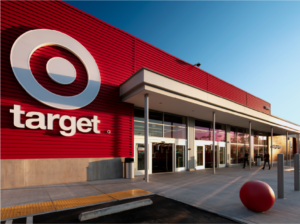- Food Startup Funding: Do you need investors to build a successful food or beverage business? - February 29, 2024
- Explaining Food Certifications & Labeling: Organing, Non-GMO, Halal, Kosher, & More! - February 29, 2024
- Explaining the Meaning of MOQ - February 29, 2024
How do you get your company in front of the right investors to land an investment? In reality, it’s often a balance between solid business fundamentals, strong planning and a healthy dose of savvy. So here are a few tips to help you strike this balance on your own investor engagement and fundraising path.
Investors want to invest in businesses, not products, so to get noticed, you must establish strong business fundamentals before engaging in the fundraising process.
- Understanding financial basics such as your revenue growth and sales velocity, is essential.
- Knowing the drivers of your gross margin shows you grasp your product input costs and trade spend dynamics.
- Further, reviewing your burn rate and how much capital is available for use, (cash flow) on a weekly basis is an essential discipline.
- It is important to also have sound supply, production, distribution and operational techniques and to be able to articulate these processes when asked.
To gain investor interest and get discussions moving toward the investment stage, try to see the world through their eyes and be ready to explain the value your company will bring to them. This should be clear not only in how you convey the numbers on which your pro forma is built, but the key story and assumptions that underpin it, as well.
A critical component of this story is of course your product, so be sure to clearly differentiate it from others on the market and explain how that difference translates to investor return.
To connect to investors, research how they look for investments and find ways for your brand to be more discoverable, especially online and in social media. Join virtual conferences, meetings and presentations in lieu of travel, and leverage chat features on virtual meeting platforms for quick, non-invasive introductions.
When you are ready to raise capital, take into account your company stage and size to properly set your expectations. Your pro forma and cash flow statement are core to determining how much capital you will need to raise, keeping in mind that your company will go through several fundraising stages. Later stage raises provide opportunities to set your valuation, but more often, potential investors will negotiate the valuation amount, depending on the funding vehicle being discussed. A couple of examples:
- SAFEs and convertible notes used in early rounds defer the valuation process to a larger round down the road.
- A ‘priced round’ trades equity for a cash infusion at a set valuation.
It is important to understand these vehicles, and what their use means to your company and current and future investors.
It can take a long time to find interested investors and negotiate terms, so patience and planning is important. During and after this process, keep investors current on important updates as part of the relationship building process.
And, like with any other relationship, find common ground: listen, respond, be open to feedback and ask questions.
A primary objective for investors is to mitigate risk, so they are always looking for ways to say “No.” Your job is to turn every “No” into a “Yes” to keep conversations moving forward. Being well prepared, knowing your business fundamentals, and building a strong relationship can all keep you moving toward that ultimate “Yes”.
And keep in mind, not every ‘No’ is final. While an investor may not be ready to invest right now, get feedback on what they would need to invest, and reach out when you have accomplished these objectives.
It takes perseverance and a lot of positivity to move through the fundraising process. Months of effort can lead only to getting turned down (sometimes multiple times) before getting the ‘Yes’ that propels you to the next level. Remember that every interaction with an investor brings knowledge and a greater understanding of what you need to do, which is an invaluable outcome of the process!
Brandjectory helps early-stage CPG brands by increasing the efficiency and effectiveness of this process, through our proprietary online platform with its numerous built-in tools, which can generate incremental opportunities for our users. Brandjectory not only improves the chances of you meeting the right investor, but ensures you have the right information available once you do connect, to help you achieve the best result.

Michael Movitz is the founder of The Movitz Group as well as co-founder of Brandjectory.
He has more than 30 years of natural & organic products industry experience across retail, manufacturer, broker and market research organizations, including 16 years with SPINS, the leading provider of retail consumer insights, analytics and consulting for the Natural, Organic and Specialty Products Industry.



